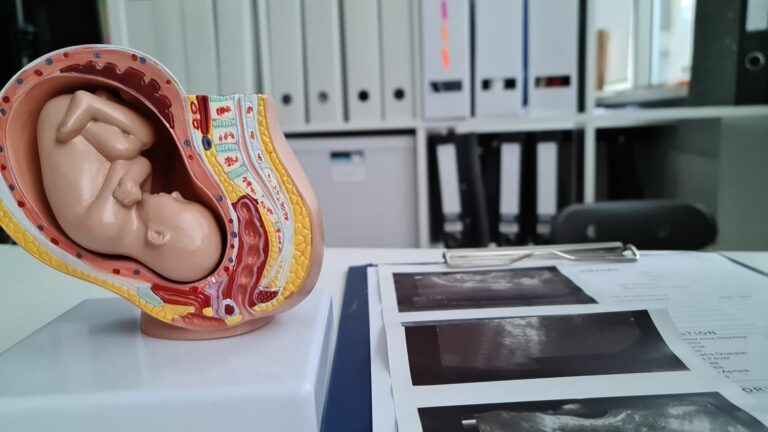
In vitro fertilization, often referred to as IVF, has provided an unparalleled lifeline for individuals and couples around the globe seeking to realize their dreams of parenthood.
Regarded as a key advancement in assisted reproductive technology, IVF has significantly broadened the horizon of infertility treatments, offering hope amid challenges and uncertainties.
Before diving deeper into the crux of this article, it might be helpful to familiarize yourself with two essential articles: “Understanding IVF” and “The IVF Procedure: A Step-by-step Guide”. Reading through these articles will ensure a solid foundational understanding of IVF.
What is IVF and How Does It Work?
In vitro fertilization is an intricate procedure that involves fertilizing an egg with a sperm outside the body –”in vitro” translates to “in glass”, symbolizing the petri dish where fertilization occurs.
The IVF journey commences with stimulation of the ovaries to produce multiple eggs. This process, known as ‘controlled ovarian hyperstimulation’, involves administering fertility medications to the patient to boost egg production.
For a complete understanding of this process, we recommend the article “IVF Cost in India: An Overview of What to Expect”, which details not only the pricing aspect but also the procedures in the IVF cycle.
Once the eggs are matured, they’re retrieved from the ovaries in a delicate procedure known as egg retrieval. Simultaneously, sperm samples are collected from the male partner or a sperm donor.
The eggs and sperm are then combined in a laboratory to enable fertilization. In cases of male infertility or lower quality sperms, Intracytoplasmic Sperm Injection (ICSI) might be employed to facilitate fertilization.
Our article on “Intracytoplasmic Sperm Injection: A Close Look” provides a thorough overview of this process.
Post fertilization, the embryologists monitor the embryos’ development. Once deemed viable, usually after 3 to 5 days, the embryo gets transferred to the woman’s uterus in a process called ’embryo transfer’.
IVF is a beacon of hope, illuminating the path to birth in scenarios once considered medically challenging. However, it entails a complex trajectory with numerous variables influencing the outcome.
The article “Understanding IVF Success Rate and How to Increase Your Chances” provides an in-depth look at the success rates and practical steps to improve your odds of success.
In the upcoming segments, we will delve further into the specifics of who might find IVF beneficial and when one should consider IVF as an option.
Stay tuned, and remember, every journey starts with a single step. Your step towards parenthood, even with its trials and triumphs, is a journey worth travelling.
Who Can Benefit From IVF
Who Can Benefit From IVF
The garden of fertility is diverse, and in vitro fertilization offers a promising path for many who find themselves at a crossroad.
The candidates who may particularly benefit from IVF include:
- Couples with factor infertility due to fallopian tube damage or blockage, where IVF bypasses the tubes entirely.
- Individuals with ovulatory disorders, premature ovarian failure, or uterine fibroids who have difficulty conceiving naturally.
- Those facing severe male factor infertility characterized by low sperm concentration, motility issues, or abnormally shaped sperm might also opt for IVF, especially with ICSI as an adjunct.
- Partners carrying genetic disorders who wish to avoid passing on these conditions to their offspring can employ IVF in conjunction with Preimplantation Genetic Screening (PGS) to select healthy embryos.
- Women who have had their fallopian tubes removed, or couples who have been battling with unexplained infertility for extended durations.
While IVF is a gateway to parenthood brimming with potential, one should not overlook the instances requiring the use of donor eggs or sperm.
Certain situations where the egg quality or quantity is compromised, or if there’s a significant risk of genetic anomalies, might warrant the use of donor eggs.
When Should I Consider IVF
Time is a critical factor in the tapestry of fertility, and understanding when to embark on the IVF journey is pivotal.
Generally, if you are under 35 and have tried to conceive for at least one year, or over 35 and have tried for six months without success, it might be time to explore IVF.
However, for those who are aware of existing fertility issues, or for women over the age of 40, consulting a fertility specialist sooner is advisable.
It’s worth noting that the emotional and physical investment in IVF is substantial. Therefore, couples or individuals usually consider IVF after trying other less invasive fertility treatments, like medication or intrauterine insemination (IUI).
However, for those facing more severe fertility issues, the direct route to IVF might be recommended without preliminary steps.
Every fertility story is intricate and deeply personal, and the right time to navigate the IVF landscape can be clarified through a thought-provoking read: “What to Expect When Considering IVF“.
This segment concludes our discussion on the beneficiaries of IVF and the timing considerations. In the forthcoming parts, we will unfold the nuanced aspects of IVF success rates, the emotional journey, financial considerations, choosing the right clinic, and answer common questions, lending a guiding light as you journey towards parenthood.
Success Rates and Factors Affecting IVF Outcome
Success Rates and Factors Affecting IVF Outcome
The triumph of IVF isn’t always a guarantee—its success is the summation of various factors interwoven delicately.
Understanding that a myriad of elements contributes to the outcome is imperative for those embarking on the IVF trail.
Let’s examine these pivotal factors:
- Age and Egg Quality: As age ascends, the quality and number of a woman’s eggs generally descend, making age a principal factor in IVF success rates.
- Sperm Quality: Complementing egg quality, the sperm’s health equally impacts IVF outcome. A prominent argument for considering Intracytoplasmic Sperm Injection (ICSI) in cases of suboptimal sperm.
- Lifestyle Choices: Habitable changes can influence IVF outcomes. A holistic approach encompassing diet, exercise, cessation of smoking, and moderating alcohol intake may contribute positively—covered extensively in “How to Increase IVF Success Chances“.
- Reproductive History: Previous pregnancies, miscarriages, or the outcome of prior IVF attempts can foretell future success.
- Fertility Clinic Choice: A center’s experience and technology play a signatory role; thus, choosing the right IVF clinic is paramount, expounded later in our discussion.
While digesting the statistical probabilities is essential, nurturing an alignment of hope with pragmatic expectations reigns supreme.
The emotional undertaking parallel to the technicalities of IVF is grand, and the cultivation of patience coupled with informed optimism often demarcates the journey’s experience.
The Emotional Journey of IVF
In the emotional mosaic that is IVF, each tile represents a spectrum of sentiments, from euphoria to profound grief.
Especially in the wake of a cycle that does not result in pregnancy, the gravity of emotional sorrow can be soul-piercing.
It’s a sorrow that warrants recognition and a compassionate space for healing. “Coping with IVF Failure: Acknowledging the Emotional Impact” walks hand-in-hand with you through the shadows, elucidating the significance of acknowledging such grief and the path to emotional resurrection.
IVF isn’t solely a physical odyssey but a psychological one that challenges the elasticity of one’s mental and emotional sinews.
The weight carried can strain relationships, yet can also fortify the bonds through shared vulnerability and unity.
It underscores the essence of mutual support, the balm of open communication, and the sanctuary of an empathetic community.
To further understand the mental health impact on partners during IVF, the article “Men’s Voices in IVF releases a symphony of hushed narratives, often overshadowing the male perspective in IVF.
The journey through IVF is complex but one need not traverse it in solitude. The forthcoming continuations will shed light on financing IVF treatments, navigating clinic selections, and intimate knowledge to arm you with insight, preparing you fully for the layered expedition ahead.
Financial Considerations of IVF
As much as IVF is an emotional and physical journey, it’s undeniably a financial commitment as well. The expenses can be daunting, ranging from medical procedures and laboratory costs to medications and potential additional services like genetic screening.
The article Understanding the Costs After IVF serves as a roadmap through the financial landscape of IVF, where costs can vary widely depending on your geographical location, the clinic, the number of cycles needed, and insurance coverage.
Navigating these costs requires a pragmatic approach, which includes looking into insurance policies that cover fertility treatments and seeking clinics that offer financial packages.
Moreover, understanding the possibility and implications of multiple pregnancies, which can incur additional costs and health considerations, is crucial.
The Financial Impact of Multiple Pregnancies from IVF is an essential read in this context.
Furthermore, some may find it helpful to be cognizant of workplace support for IVF, which can range from financial assistance to time-off policies.
Finding the Right IVF Clinic
Choosing the right fertility clinic is perhaps one of the most consequential decisions in the IVF process. A clinic suited to your needs can pave the path for a successful and supportive experience.
Consideration of factors such as success rates, the experience of staff, available treatments, and the clinic’s approach to patient care should be central when making your selection.
Additionally, it’s important to assess how comfortable you feel with the clinic’s atmosphere and the transparency of the staff when discussing procedures and costs.
The search for the ideal clinic is not just about the statistics; it’s about where you feel heard, respected, and where your journey is personalized.
This segment has outlined key financial considerations and the importance of selecting the right clinic for your IVF journey.
In the final part of our article, we will illuminate some of the most Frequently Asked Questions about IVF, providing you with clear, concise information to guide your decisions.
Frequently Asked Questions About IVF
Is IVF only for couples with infertility?
While IVF is primarily used to overcome infertility, it’s also a choice for individuals with genetic disorders wanting to avoid transmission to the child, same-sex couples, single parents by choice, and for fertility preservation methods, such as before cancer treatment.
How many IVF cycles should I undergo?
The number of IVF cycles one should undergo varies significantly between individuals. A candid conversation with your fertility specialist, assessing emotional and financial factors, can help determine an appropriate plan.
Does IVF increase the risk of having twins or multiples?
Yes, IVF can increase the likelihood of twins or multiples, especially if multiple embryos are transferred.
However, with advancements like Single Embryo Transfer (SET), the focus on reducing the chances of multiples is becoming standard practice.
What are the risks associated with IVF?
Potential risks could include ovarian hyperstimulation syndrome (OHSS), procedural complications, and the emotional stress related to treatment.
Can lifestyle changes improve my chances of IVF success?
Yes, such as maintaining a healthy weight, quitting smoking, reducing alcohol and caffeine, and managing stress.
What if IVF doesn’t work for me?
It’s an unfortunate possibility and one that many couples face. Exploration of alternate family-building options like adoption, use of donor embryos, or embracing child-free living can be paths forward.
Can I afford IVF?
This depends on many factors including personal financial circumstances, available fertility benefits, clinic costs, and what you’re willing to invest. It’s essential to explore all potential resources and pathways, as outlined in Navigating IVF on a Tight Budget.






